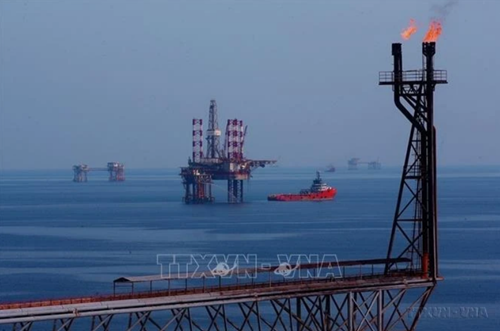In an interview granted to the Vietnam News Agency on the occasion of the state visit to Vietnam by Russian President Vladimir Putin on June 19-20, Thai said that after their diplomatic relations were established on January 30, 1950, the Democratic Republic of Vietnam (now the Socialist Republic of Vietnam) and the Soviet Union (now Russia) signed of a scientific and technical cooperation agreement between the on March 7, 1959, prioritizing bilateral cooperation in the field of science and technology.
    |
 |
|
Russian-invested projects have contributed to Vietnam's socio-economic development. |
Over the past 65 years, the two countries have inked a series of agreements on cooperation in this field. In November 2014, the cooperation was raised to a strategic level when the two nations signed a strategic partnership agreement on education and science and technology on the occasion of the visit to Russia by Party General Secretary Nguyen Phu Trong.
The Vietnamese Ministry of Science and Technology has coordinated with Russian partners to provide funding to carry out nearly 60 joint research collaboration tasks on biotechnology, new materials, electronics, automation, social sciences, humanities, and economics.
On November 21, 2011, the Governments of Vietnam and Russia signed a cooperation agreement on building the Centre of Nuclear Science and Technology (CNST) in Vietnam.
Accordingly, in 2018, the Prime Minister approved the investment policy to build the 10-MW centre in Long Khanh city in the southern province of Dong Nai and assigned the Ministry of Science and Technology to be its investor.
In the coming time, the two sides will continue to promote collaboration in science, technology and innovation through the mechanism of the joint committee on education, science and technology cooperation whose meeting is held annually in a rotational basis in each country.
They will periodically identify priority directions for cooperation in this field, thereby selecting joint research cooperation tasks for being funded.
Notably, Vietnam’s priority directions for cooperation with Russia in the coming time will focus on the fields that Russia has strengths and Vietnam has needs such as new materials, biotechnology, marine research, space technology, energy technology, and rational use of natural resources.
In addition, the two sides will pay attention to implementing the CNST project and intensifying collaboration in training human resources for the project’s implementation, stated Thai.
Source: VNA